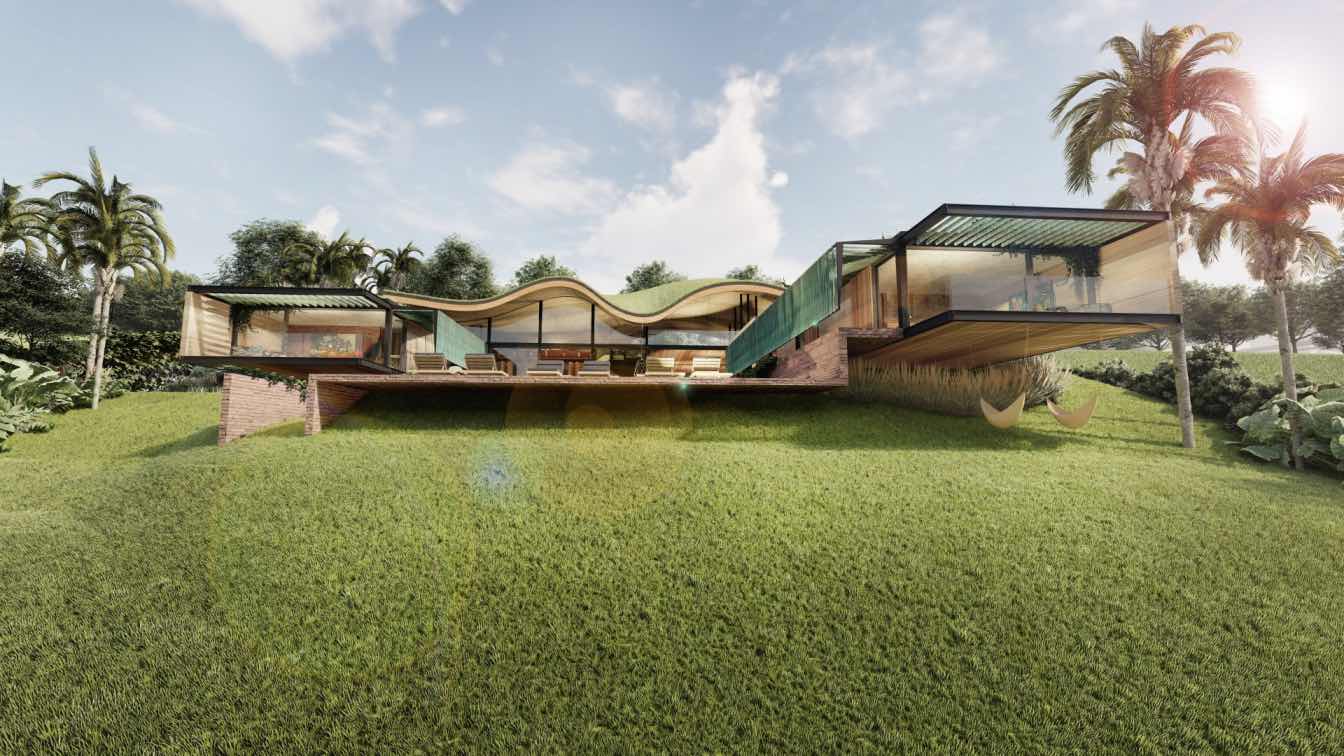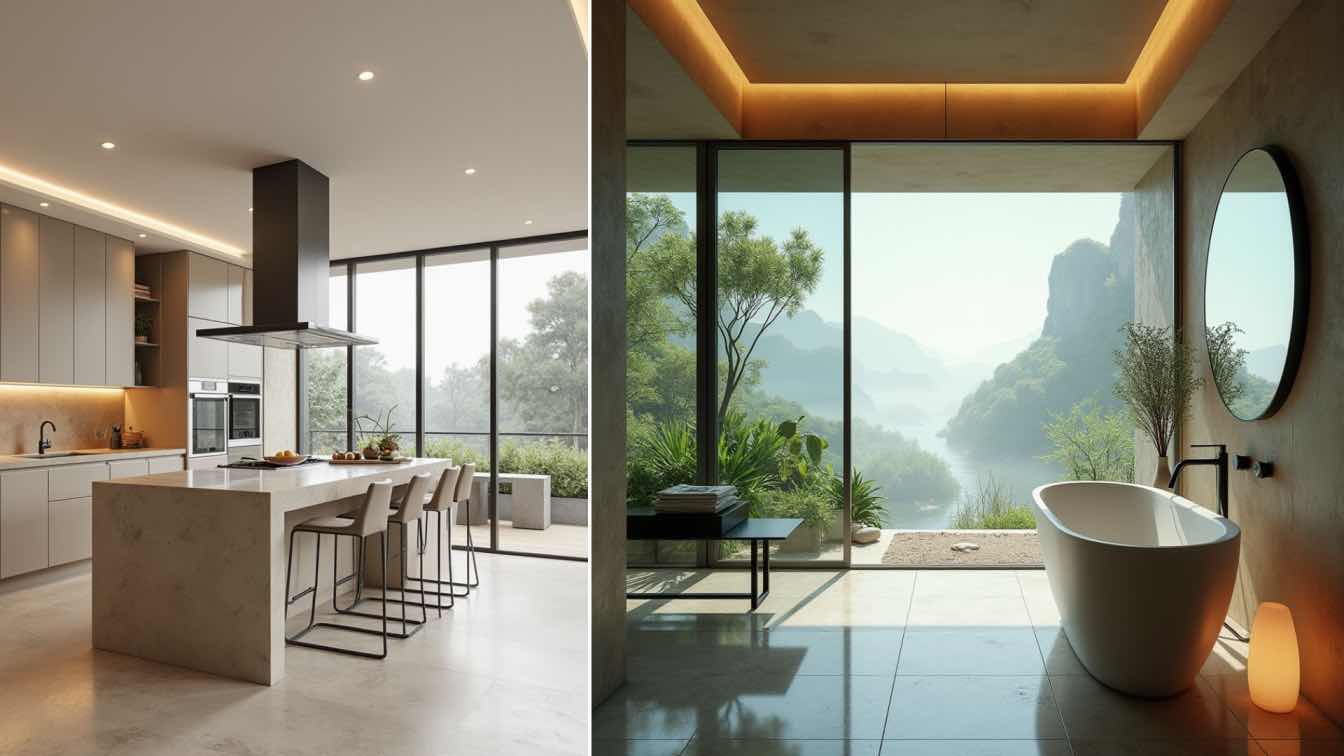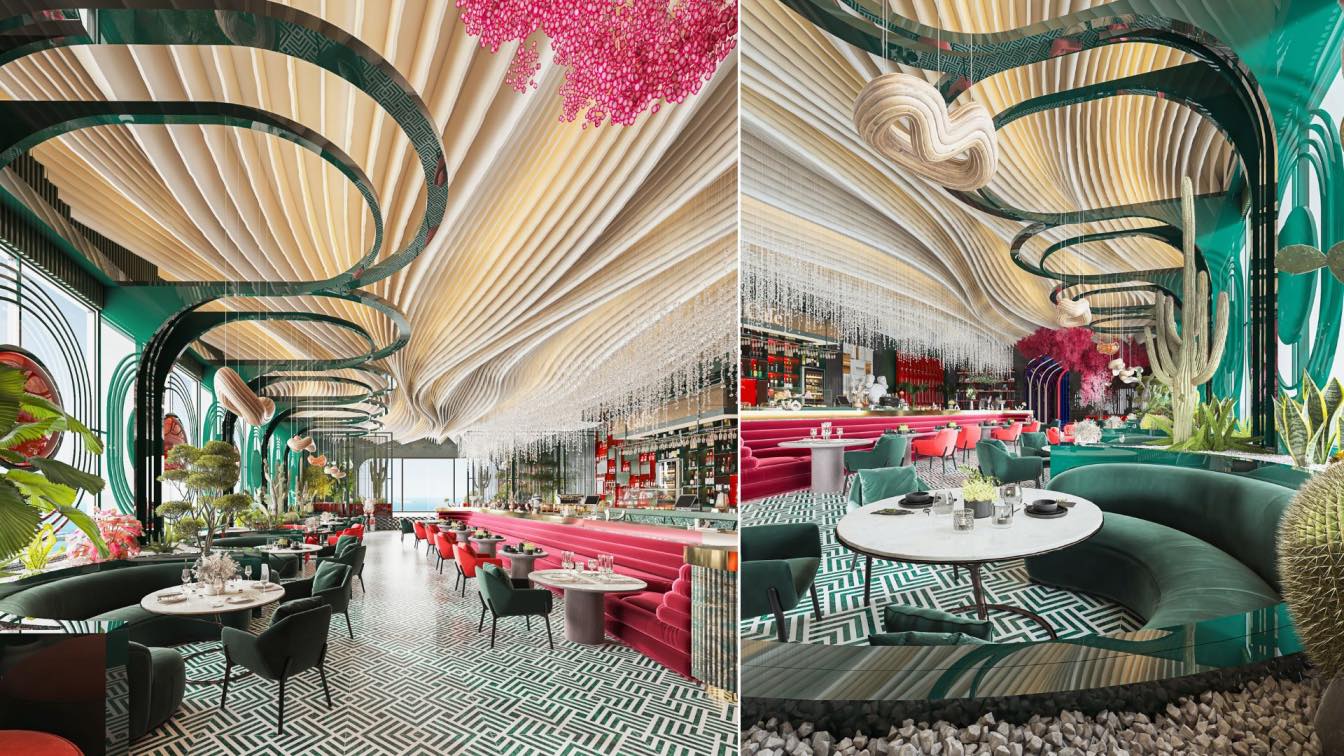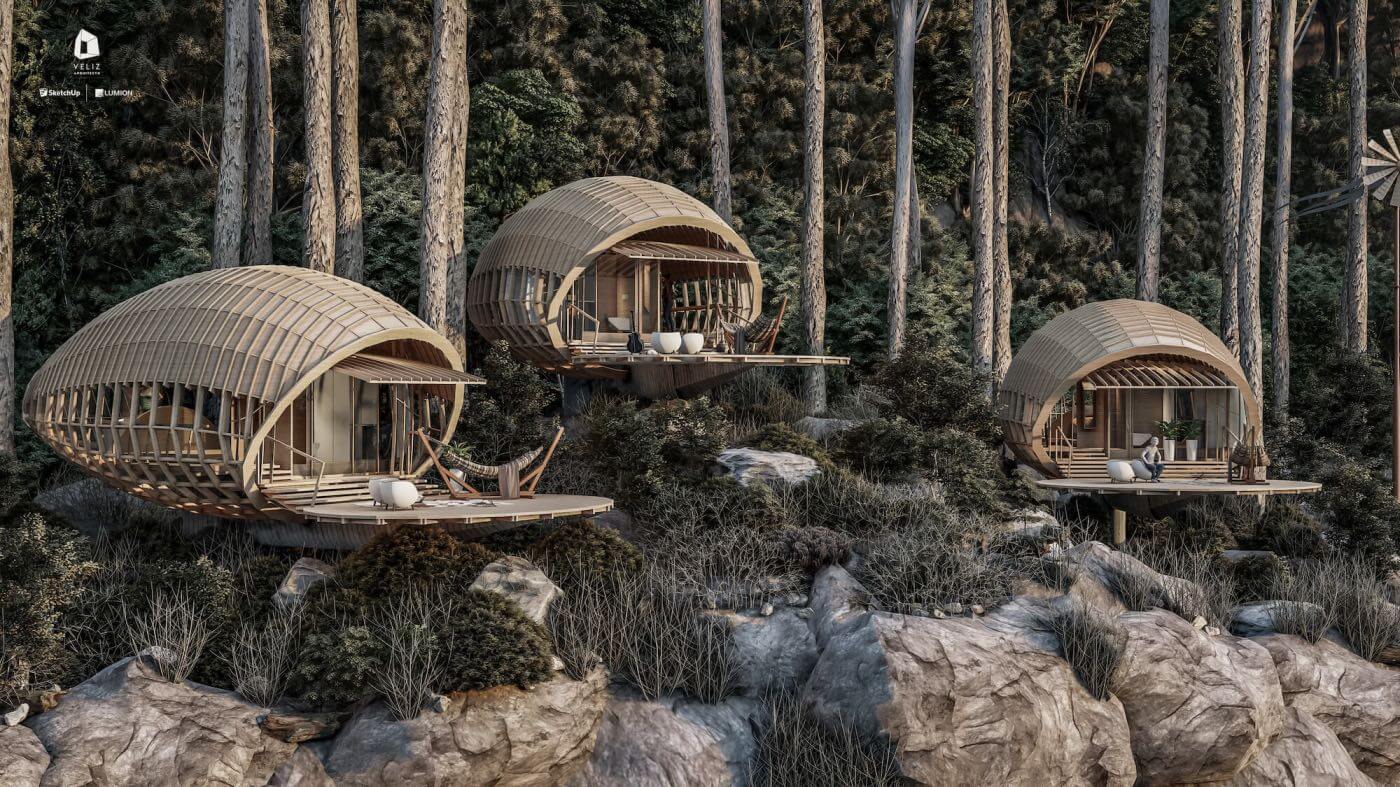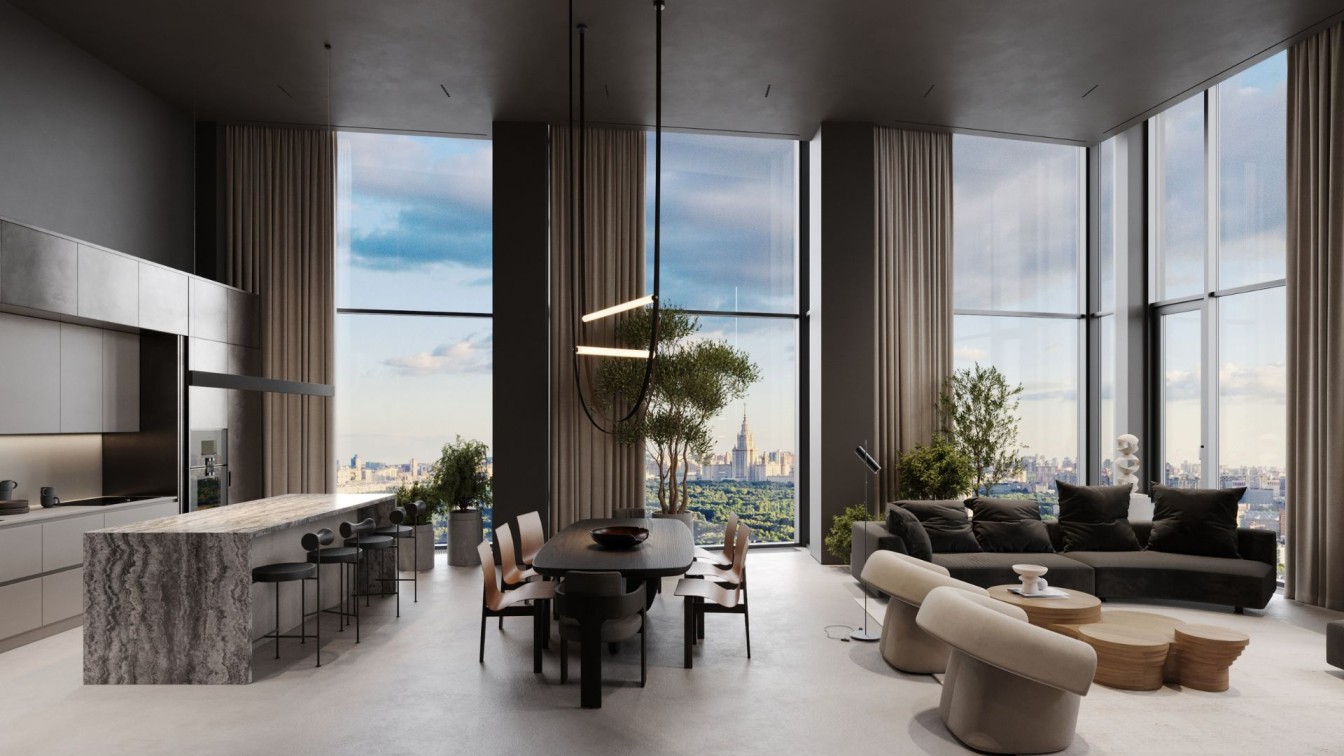In Hindu tradition, Maya is the goddess of illusion. Based on this concept, Mareines Arquitetura developed Grass Farm, a project that integrates into the landscape in a chameleon-like way, generating different perspectives depending on the point of observation. Located on a sloping site in São Paulo, Brazil, the residence was strategically placed. Positioned with its back to the street and facing a forest, the house challenges conventional concepts of residential architecture.
Realizing the opportunity offered by the terrain, the architectural firm decided to create a sculptural roof, full of vegetation, which seems to merge with the local topography. The aim was to work with perspectives, creating a unique visual experience for the beholder. The big challenge was to transform the residence into something different without losing the intimate connection with the surrounding nature. To achieve this, cutting-edge techniques and a combination of materials were used, including a mixed metal structure and glued laminated timber, to support the vegetation cover and bring the sculptural element to life.
"We wanted to visually integrate the residence with its surroundings, creating the sensation that the ground had been cut out and transformed into a roof," says Ivo Mareines, architect and founding partner. The interior of the project also sought to reflect the innovative approach, with large, integrated spaces that flow smoothly from one environment to another. From the social areas on the second floor to the bedrooms and leisure areas on the second floor, each space has been meticulously designed to maximize the connection with the outside.

In addition to its aesthetics, the residence also stands out for its sustainable approach. Materials such as rammed earth, wood and soil cement flooring add charm to the project, contributing to the home's environmental comfort and energy efficiency.
The outdoor area, with its lawn, wooden deck and natural filtration pool, offers an inviting space to relax and enjoy the tranquillity of the surrounding woods. Complementing the experience, the house was designed to minimize the use of mechanical means for cooling, making the most of natural light and sustainable resources, including solar energy panels.
"Grass Farm is a testament to architecture's ability to adapt and evolve in harmony with the environment. By integrating natural elements with contemporary design, we have created a residence that stands out visually and inspires a new way of living, in balance with nature," concludes Matthieu Van Beneden, architect and partner of the firm.














































































About Mareines Arquitetura
Mareines Arquitetura is an architecture and urban planning firm that seeks an innovative response to every job. Enthusiastic about architecture, they see projects as a challenge, eschewing pre-established formulas and the repetition of their own solutions. They have completed projects all over Brazil, in states such as Acre, Ceará, Bahia, São Paulo, Rio de Janeiro, Goiás and Minas Gerais, and in countries such as Puerto Rico, Portugal and Saudi Arabia, as well as the city of Jerusalem.
With work published by media outlets all over the world, including Europe and Asia, the harmony between technology, poetics and contemporary design are hallmarks of the firm. In addition, plural architecture, multiculturalism and attention to social and constructive contexts are the focus of each project, which also includes aesthetic quality and concern for a more balanced and sustainable society.
About Ivo Mareines
Ivo Mareines has a degree in architecture and urbanism and a postgraduate degree in philosophy. In the 1980s and 1990s, he developed independent projects, especially in the cultural field. He has also exhibited as a visual artist at MIS São Paulo, MAM Rio de Janeiro and the São Paulo International Biennial. From 2001 to 2016, he was a founding partner of Mareines+Patalano Arquitetura in Rio de Janeiro, Brazil.
About Matthieu Van Beneden
Matthieu Van Beneden graduated in Architecture and Design in Brussels, Belgium. He did an exchange in 2009 as an intern at Mareines+Patalano Arquitetura and, at the end of 2011, returned to Brazil and began working as an architect. He has participated in important projects such as the Residence in the Dominican Republic, the Museum of the Sea in Santa Cruz de Cabrália, as well as resorts in the Amazon and Northeast Brazil. In 2017 he joined Mareines Arquitetura as an important element in the firm's internationalization process. As a Belgian and honorary Carioca, he blends the spirit of European tradition with the luminosity of Rio de Janeiro.

